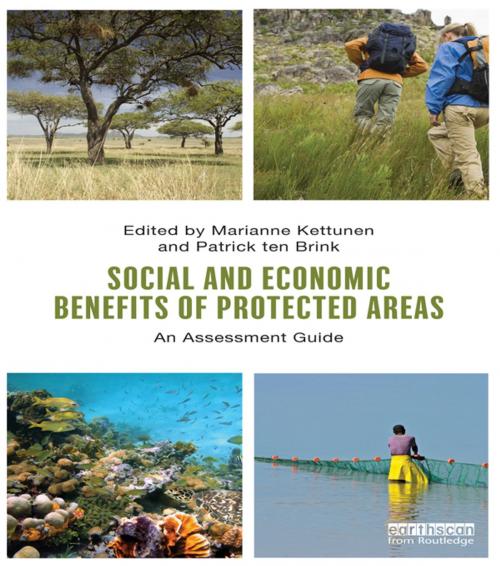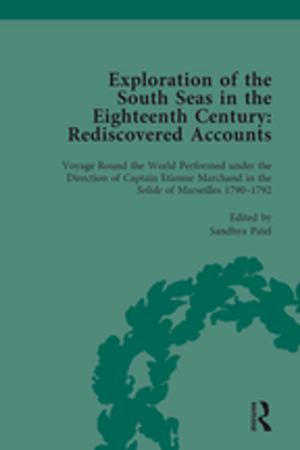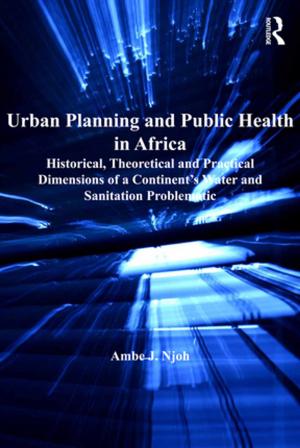Social and Economic Benefits of Protected Areas
An Assessment Guide
Nonfiction, Science & Nature, Science, Biological Sciences, Ecology, Nature, Environment, Environmental Conservation & Protection, Business & Finance, Economics| Author: | ISBN: | 9781136213090 | |
| Publisher: | Taylor and Francis | Publication: | September 5, 2013 |
| Imprint: | Routledge | Language: | English |
| Author: | |
| ISBN: | 9781136213090 |
| Publisher: | Taylor and Francis |
| Publication: | September 5, 2013 |
| Imprint: | Routledge |
| Language: | English |
Protected areas (PAs) contain biodiversity and ecosystems of high conservation value. In addition, these areas provide a range of benefits, both direct and indirect, to our societies and economies, i.e. so called ecosystem services. These services include, for example, an ecosystem's ability to regulate floods and climate, purify water, secure the pollination of crops, and create opportunities for recreation, culture and tourism.
This book offers a comprehensive introduction to the socio-economic benefits of PAs and PA networks and provides step-by-step practical guidance on identifying, assessing and valuing the various ecosystem services and related benefits provided by PAs. It also aims to improve the communication of PA benefits to different stakeholders and the general public. It is shown that identifying and valuing the socio-economic benefits of PAs can be beneficial for several reasons. Demonstrating socio-economic importance of a protected site can significantly increase political and stakeholder support for the site and resolve conflicts between different interest groups. This can lead to positive changes in policies and decision-making. Insights on PA benefits are also needed to identify a combination of actions and land use practices that best support the sustainable and equitable utilisation of these benefits, while retaining a site’s conservation goals. Finally, demonstrating different benefits can help to discover alternative and sustainable sources for financing the management of PAs.
Protected areas (PAs) contain biodiversity and ecosystems of high conservation value. In addition, these areas provide a range of benefits, both direct and indirect, to our societies and economies, i.e. so called ecosystem services. These services include, for example, an ecosystem's ability to regulate floods and climate, purify water, secure the pollination of crops, and create opportunities for recreation, culture and tourism.
This book offers a comprehensive introduction to the socio-economic benefits of PAs and PA networks and provides step-by-step practical guidance on identifying, assessing and valuing the various ecosystem services and related benefits provided by PAs. It also aims to improve the communication of PA benefits to different stakeholders and the general public. It is shown that identifying and valuing the socio-economic benefits of PAs can be beneficial for several reasons. Demonstrating socio-economic importance of a protected site can significantly increase political and stakeholder support for the site and resolve conflicts between different interest groups. This can lead to positive changes in policies and decision-making. Insights on PA benefits are also needed to identify a combination of actions and land use practices that best support the sustainable and equitable utilisation of these benefits, while retaining a site’s conservation goals. Finally, demonstrating different benefits can help to discover alternative and sustainable sources for financing the management of PAs.















